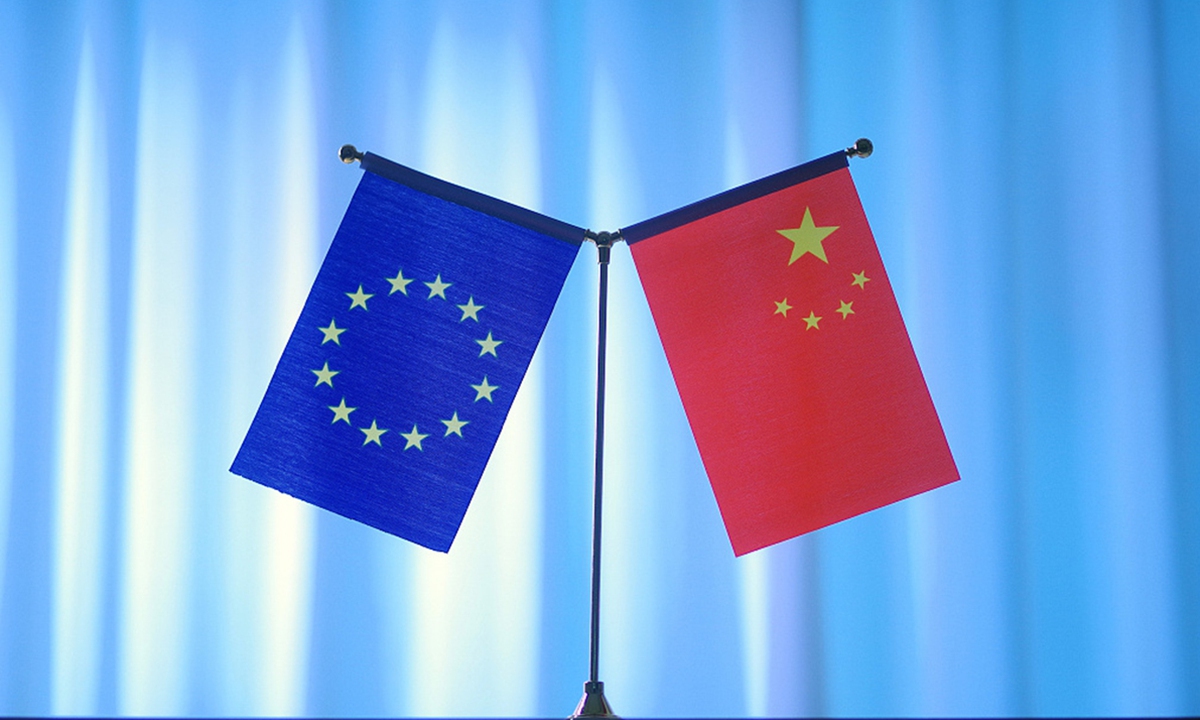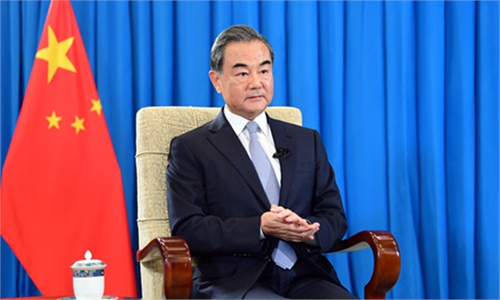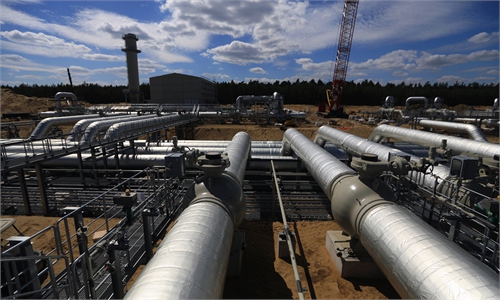
China EU Photo: VCG
China and the EU, facing increasing tumult and political splintering in the world, should rise to the grave challenges and form a long-lasting foundation for cooperation and partnership to uphold their common interests, because the two shoulder the shared responsibility to safeguard world peace and economic growth.As Chinese strategists have noted, the more complicated and turbulent the time facing Europe and China, the more the two parties ought to insist on viewing each other from a strategic perspective - that China will continue to support a politically unified and economically stronger EU, while the EU should reciprocate by supporting China and distancing itself from the US government's ruthless anti-China policy.
The common interests between China and the EU define the two parties should continue to be true partners and international stakeholders, but not rivals or even adversaries, because there are no irreconcilable geopolitical conflicts between the two sides.
For instance, the resilience and potential of their partnership have been fully displayed in the past several years. Since fully establishing a relationship in 1983, the economic relationship between the two has boomed. At the end of the 20th century, trade volume between China and the EU stood at merely $55.7 billion.
In 2021, bilateral trade between the two giant economies surged to $828.2 billion, rising 27.5 percent year-over-year, which explains the high stakes why the two should continue to backstop each other, economically and diplomatically.
It also stipulates that the EU should form its own thoughts on China, Chinese people and Chinese culture, and pursue an autonomous China policy that ought not to be influenced by the US or the Anglo-Saxons. Ever since the Brexit - the UK's separation from the EU, China has been supporting the EU, led by Germany, France and Italy, to solidify the commonwealth and build up an effective, balanced, and sustainable security mechanism in Europe.
Acting as two important powers that vow to maintain peace, two massive markets that promote common development, and two civilizations that drive forward human progress, China and the EU are able to lay the bedrock for global stability, and work hand in hand to bring about greater hope of peace and prosperity for the whole world.
For sure, no single relationship is without challenges. It is na?ve or even dangerous to define a relationship in just one or two aspects, claiming that the relationship is not working perfectly well or it is going to collapse. Despite all the differences and sometimes disputes between them, China and the EU have one of the strongest economic ties that always helps withstand the assault of difficulties.
Generally speaking, Chinese people cherish Europe's rich culture, and China and the EU has cooperated well on coping with global climate change by resolutely observing the Paris climate accord. The two also partnered well in upholding the global multilateralism and opposing trade protectionism, as well as finding a lasting solution to the Iran nuclear issue despite the disturbance during the Trump administration.
However, the retirement of former German chancellor Angela Merkel has sparked tangible changes to the EU's approach to policy. Europe's independent policy-making has been undercut or scaled back, as the world saw the EU's past balancing stance with the US, Russia and China is being replaced by its outright adoption of the US' hardline posturing.
In the past two years, some politicians in the European Commission have brazenly followed the US and intruded into China's internal affairs, including Xinjiang, Hong Kong and Taiwan, increasingly drawing the ire of Chinese people, and only serves to downgrade the EU into an expendable piece on Washington's geopolitical chessboard.
In the past months, the European leaders failed to mend ties with Russia, by stopping the eastward expansion of the NATO, which evolved and led to an all-round confrontation with Moscow now. As a matter of fact, the US government has kept fuelling the crossfire between Russia and Ukraine through donating funds and weapons to Ukraine, and at the same time imposing the harshest economic and financial sanctions on Russia.
The US is thousands of miles away from the battlefield, so it is highly unlikely for it to be drawn into a direct battle. Washington aspires to prolong the conflict in Europe to realize a sinister target - to weaken both Russia and the EU.
Now, with energy and major industrial raw materials supply in jeopardy, the EU's long-term economic prospects have dimmed, with the region facing severe stagflation or potentially a historic depression around the corner. The Biden administration does not want to see win-win cooperation between Europe and China, either. The politicians in Washington only want to prolong the US' global predominance and hegemony.
Therefore, it is important for the EU leaders to see the true intentions of the US government by not easily falling into the trap of a new cold war in Europe. The EU should do its best to avert a recession by continuing to developing trade and investment ties with China. Next year marks the 30th anniversary of the founding of the EU, and, the EU leaders, standing at a historical moment, should always bear a bigger picture in mind - a multi-polar world is in the interest of all.
The author is an editor with the Global Times. bizopinion@globaltimes.com.cn



